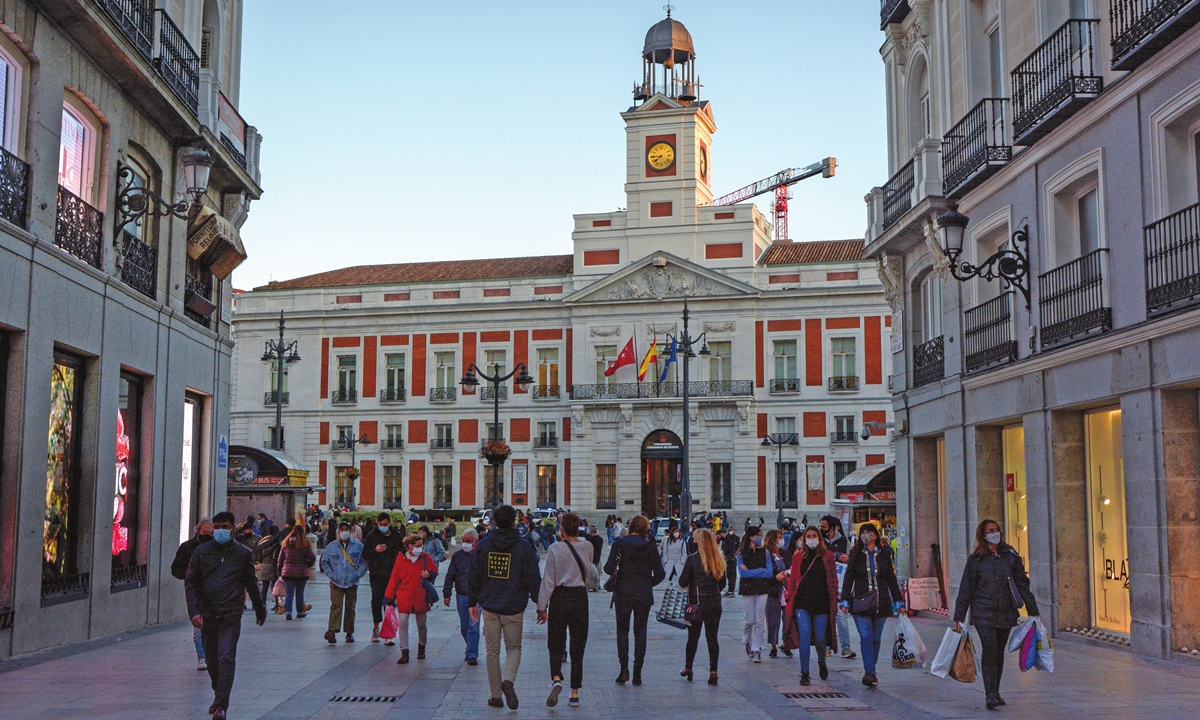
A general view of Madrid, Spain on October 2
The suspension of a key judicial reform by a top Spanish court following an appeal by the right has triggered an institutional crisis denounced as “unprecedented” by Spain’s left-wing government.
The rare intervention by Spain’s Constitutional Court late on Monday suspended penal code changes that were to be put to a vote in the Senate on Thursday following an appeal by the right-wing opposition Popular Party (PP).
The reforms would have paved the way for renewing the mandates of four of the Constitutional Court’s 12 judges whose mandate expired at the end of June.
The government says the changes are necessary to end a four-year partisan stalemate that has paralyzed judicial appointments and increasingly hamstrung the court system.
But the PP and its allies have accused the government of trying to stack the courts with leftist allies whose appointments it has sought to block.
The move was roundly denounced by Prime Minister Pedro Sanchez.
“These events are unprecedented in the democratic history of our country,” he said of the period that began after the end of Franco’s leadership in 1975, “but also in the history of any other country in the European institutional area.”
His words were echoed by Justice Minister Pilar Llop, who accused the PP of “hijacking Spain’s democratic institutions.”
And cabinet minister Felix Bolanos called the court’s intervention “extremely serious.”
“The Constitutional Court has suspended the legislative action of the legitimate representatives of the Spanish people, which has never happened in 44 years” since the adoption of the Spanish Constitution in 1978, he said.
But PP leader Alberto Nunez Feijoo accused the government of rushing through the reform.
Institutional Crisis as Top Spanish Court Blocks Govt’s Judicial Reform
A general view of Madrid, Spain on October 2
The suspension of a key judicial reform by a top Spanish court following an appeal by the right has triggered an institutional crisis denounced as “unprecedented” by Spain’s left-wing government.
The rare intervention by Spain’s Constitutional Court late on Monday suspended penal code changes that were to be put to a vote in the Senate on Thursday following an appeal by the right-wing opposition Popular Party (PP).
The reforms would have paved the way for renewing the mandates of four of the Constitutional Court’s 12 judges whose mandate expired at the end of June.
The government says the changes are necessary to end a four-year partisan stalemate that has paralyzed judicial appointments and increasingly hamstrung the court system.
But the PP and its allies have accused the government of trying to stack the courts with leftist allies whose appointments it has sought to block.
The move was roundly denounced by Prime Minister Pedro Sanchez.
“These events are unprecedented in the democratic history of our country,” he said of the period that began after the end of Franco’s leadership in 1975, “but also in the history of any other country in the European institutional area.”
His words were echoed by Justice Minister Pilar Llop, who accused the PP of “hijacking Spain’s democratic institutions.”
And cabinet minister Felix Bolanos called the court’s intervention “extremely serious.”
“The Constitutional Court has suspended the legislative action of the legitimate representatives of the Spanish people, which has never happened in 44 years” since the adoption of the Spanish Constitution in 1978, he said.
But PP leader Alberto Nunez Feijoo accused the government of rushing through the reform.



